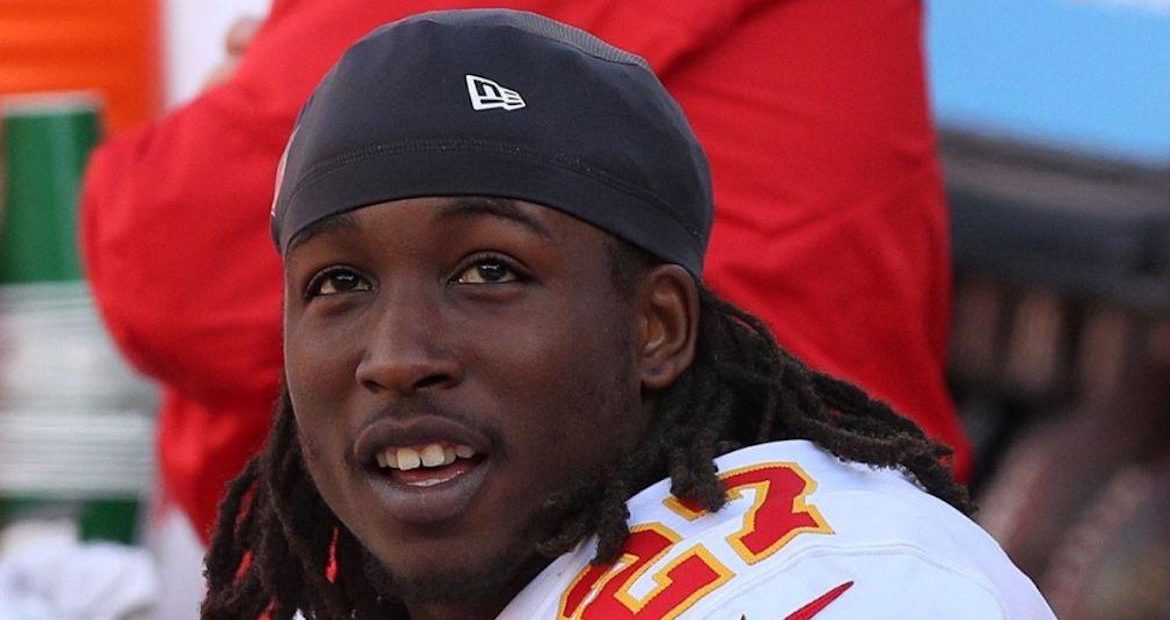
Kareem Hunt’s ‘Second Chance’ Showcases NFL’s Lack of Morality
The Kareem Hunt narrative is a tired one because it’s so cyclical. NFL player commits violent act, NFL player goes on immediate apology tour vowing to change, NFL player gets second chance too quickly for any legitimate rehab and reformation to set in. And the part that’s extra jarring: NFL team, in this case the Cleveland Browns, signs alleged perpetrator while declaring their investigation “thorough” or “extensive” without talking to the alleged victim.
Just two months after video captured Hunt kicking and shoving a woman in a Cleveland hotel lobby, the Browns threw him a life jacket and here we are again.
“Given what we know about Kareem through our extensive research,” Browns GM John Dorsey said, “we believe he deserves a second chance but certainly with the understanding that he has to go through critical and essential steps to become a performing member of this organization, aside from what the NFL determines from their ongoing investigation.”
Later Dorsey unapologetically said he made no attempt to reach out to the alleged female victim. (The same presumably goes for the man Hunt alleged assaulted in a Kansas City nightclub in January 2018 and the other man Hunt alleged punched in June.)
Speaking to the alleged victims and gathering a complete account is, of course, an obvious prerequisite to conducting an investigation that could be labeled anything near “extensive.” And as recently illustrated by Deadspin’s Diana Moskovitz, there is a critical difference between assault and domestic violence, and their respective treatments. Hunt’s act in Cleveland was assault since he didn’t have an intimate relationship with the woman. Committing the time and resources to conduct a real investigation and understand the intricacies of each type of violent act might place teams in a better position to help rehabilitate the troubled athletes they tout giving a “second chance” to.
But Dorsey and the Browns acted hastily, offering up the usual tropes to justify their quest for a competitive advantage.
And that too familiar icky feeling is back. The one where the dark reality of the NFL sets in. The one where in an instance we are broadly reminded that the NFL doesn’t care about women or men or children until they stop watching its product or purchasing its gear. That it is willing to bury any semblance of its self-proclaimed moral compass to ensure the best football players in the world are gracing our TV screens on Sundays. Where the inevitable casualties, from either injuries or off-the-field problems, are simply a cost of doing business.
None of this is to say that Hunt should not have the opportunity to work his way back to the NFL. Maybe Hunt is genuinely apologetic and has begun the right steps to prevent future incidents of anger turning into violence. But the hastiness of the signing without any legitimate explanation of the steps Hunt has undergone would be stunning for anyone not already de-sensitized to the NFL’s history of blowing smoke about minimizing off-field violence.
When Ray Rice was shown punching his fiancé in an Atlantic City elevator in 2014, the NFL vowed to change its handling of violence against women, after massive public outrage, of course. Roger Goodell eventually announced a baseline six-game suspension for any case of domestic violence that wasn’t mitigated or heightened by other circumstances. At the time it was the league’s signature policy. Experts were brought in by both the NFL and players union, and the league added a vice president of social responsibility, all of which culminated in a supposed extensive mandatory training for team employees and players. Except that lasted just two years.
Concurrently the first cases of violence under the new policy came in which had inconsistent, confusing and reactive punishments, and the NFL never had a plan on how to handle draft prospects with known violent pasts like Joe Mixon and Tyreek Hill. The two experts brought into the NFLPA commission became disenfranchised by non-action and quit last year. One of them, Deborah Epstein, a professor of law and co-director of the Georgetown University Law Center’s Domestic Violence Clinic wrote in a Washington Post op-ed, “Because I care deeply about violence against women in the NFL and beyond, I can no longer continue to be part of a commission that is essentially a fig leaf.”
So while it’s easy to cast blame on the Browns and John Dorsey, the lip service culture created by the league is the real culprit. Hunt is on a commissioner’s exempt list, a weird moniker that rings as a reward but actually means the player’s case is under review, yet he can still earn a paycheck just not practice or play. As we see in the case of Hunt, a player can still be signed while his case is under investigation, which seems to suggest the purpose of the exempt list is to buy time to let the media and fan scrutiny blow over. However, judging from the reaction to Hunt signing on social media, the Browns’ win-at-all-cost mentality does not seem like it will be shared by their fans any time soon.
There’s a difference between zero tolerance, which experts have warned against, and laying down a red carpet for the offending player to resume his place on an NFL roster while the league determines the severity. And the reality is the Browns and Dorsey simply beat other teams to the punch.
Deepening the reality is the juxtaposition to the news that immediately preceded the Hunt signing. Carolina signed safety Eric Reid to a three-year deal, and amidst Reid’s teleconference with reporters he stated “his hope tank was on E” in respect to questions about Colin Kaepernick making it back to the NFL.
Let that sink in. Be shown on video assaulting a woman, get back in the NFL in two months. Non-violently kneel to protest police brutality and societal inequality, get banned for life.
In a powerful Outside the Lines piece last weekend Bob Costas revealed that he was taken off NBC’s Football Night in America after penning an essay about the film ‘Concussion’ and the NFL’s efforts to discredit brain trauma research. Costas expressed his ambivalence– disgust really – with the league’s glorification of violence. Costas was focused on one corner of the league’s darkness but the permanent stain that is the shunning of Kaepernick could certainly fall in a similarly deep shadow. Both issues illustrate the NFL’s base mantra: come for the football, leave your morality at home.
This is not to say the NFL is completely devoid of societal worth. Aside from an entertaining product, the league does associate itself with some worthy causes and organizations. But, unfortunately its quest to stand against violence toward woman has been an abject failure. Otherwise Hunt would be unemployed and re-enter the league only when he could truly explain why he is ready for a second chance. Only when he could explain what he’s learned and how he’s changed. But that will have to wait because there are football games to win.



